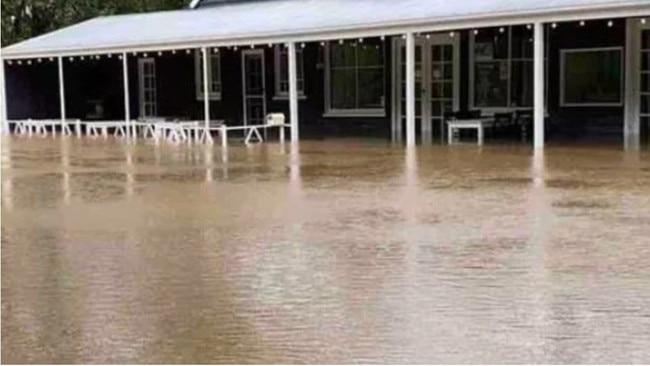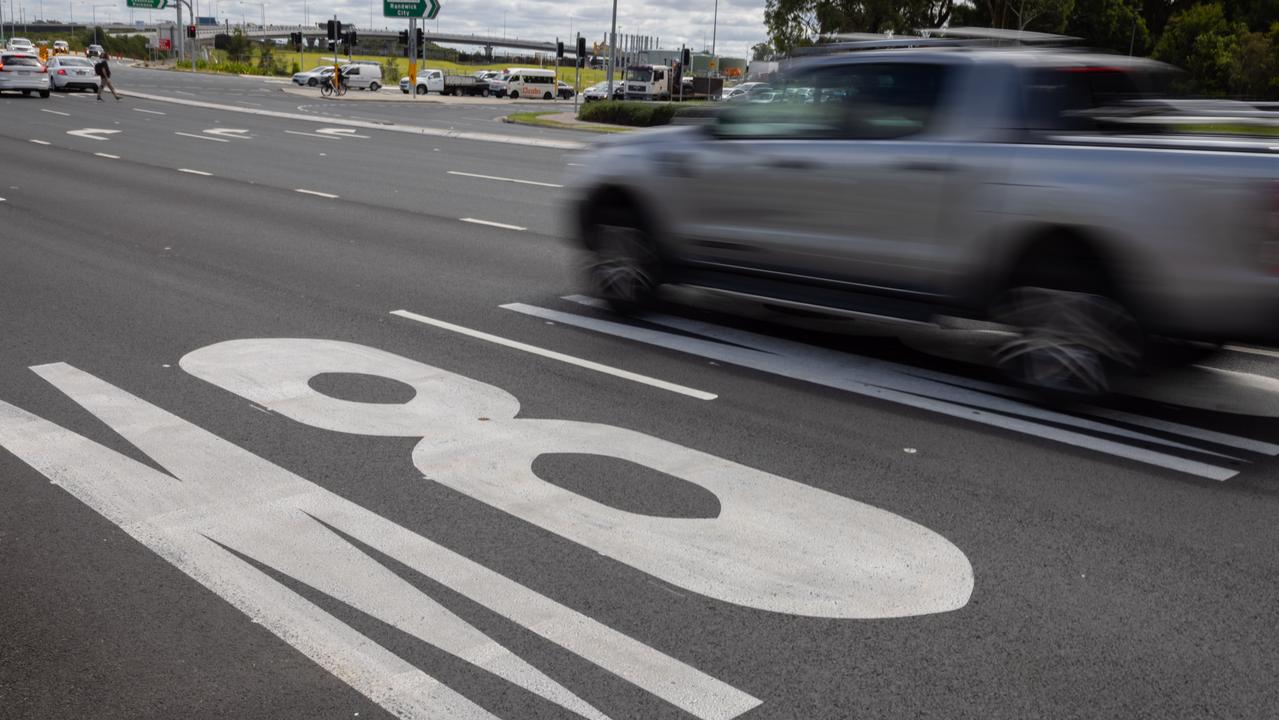Big insurance hikes may have run course, Suncorp CEO says
Suncorp CEO has provided some hope to homeowners that eye-watering premium hikes may be in the past, as he called for a halt on building homes ‘in areas they should never be built’.

Business
Don't miss out on the headlines from Business. Followed categories will be added to My News.
Suncorp chief executive Steve Johnston has provided some hope to homeowners bracing for looming premium hikes, signalling the eye-watering rises of recent years may be in the rearview mirror as global pressures around reinsurance ease.
A plan to build a more resilient Australia, meanwhile, must be at the top of the national agenda ahead of next year’s federal election, he warned, as he apologised for the insurer’s handling of claims from the 2022 east coast floods.
Speaking at the insurer’s annual shareholder meeting on Tuesday, Mr Johnston addressed criticism of hefty premium rises, saying inflation, adverse weather and a fundamental reset in global reinsurance markets all had material impacts on profitability, particularly in home and motor insurance.
“We have dealt with around 700,000 natural hazard claims over the past five years at a gross cost of around $9bn. Our reinsurance and natural hazard allowances have increased by more than $1bn since 2020, while inflation in home and motor insurance has increased by 7 per cent and 13 per cent respectively. All of this explains why insurance premiums have risen so steeply over the past couple of years,” he said.
But higher premium hikes may have run their course, with Mr Johnston pointing to a recent easing of global pressures around reinsurance.
“The relative good news is that our reinsurance renewal for 2025 was constructive. The discussions we’ve had with the global reinsurers over recent weeks … have continued with that constructive position,” he said.
“So we’d like nothing more, over the next period of time, for that pressure (to) start to come off premiums because the global reinsurance market has been through its reset.”
“We are looking to ourselves at how we can slow down the pace of premium increases,” chairman Christine McLoughlin added.
As the insurer eyes a softening in pricing, Mr Johnston said more investment was needed in resilience infrastructure around the country and that there should be a halt on “building homes where they should never be built”.
“We continue to advocate strongly with governments and policymakers for greater investment in disaster mitigation and to improve resilience to extreme weather,” he said.
“Reducing risk will not only protect lives, but it will also go a long way in reducing the risk of a claim, in turn ensuring Australians and New Zealanders can access affordable, fit-for-purpose insurance.”
Following funding commitments from state and the federal government on disaster mitigation and resilience, Mr Johnston said more needed to be done, as he turned to government action to address housing shortages.
“I’m particularly concerned that in the rush to address the current housing shortages, the mistakes of the past will be repeated, putting a new generation of our citizens in harm’s way,” he warned.
Mr Johnston also called for the removal of “inefficient taxes and charges” from insurance policies.
The 2022 floods triggered more than 305,000 insurance claims and $7.7 billion in losses for insurers, including Suncorp and peers IAG and QBE.
Suncorp customers put in 51,000 claims following the floods, which came, Mr Johnston said, as the insurer was “dealing with the post-covid supply chain and labour availability issues”.
“It’s apparent to me that in some cases we let our customers down,” Mr Johnston told shareholders.
“I apologise to those customers where our claims processes did not meet theirs, or our, expectations.”
Among the votes taken at the annual meeting was on the return of capital to shareholders from the sale of Suncorp Bank to ANZ. Suncorp expects net proceeds from the sale to be around $4.1bn, with most of this expected to be handed to shareholders by way of a capital return and a smaller fully franked special dividend. The overwhelming majority of shareholders — 99 per cent — supported the capital return plan.
In response to a shareholder question on the size of the board following the bank sale, Ms McLoughlin said there was no plan to reduce the size of the board, in part due to “the complexities of the external change that boards continue to have to take into account … (including) around cybersecurity and cyber resilience, the transition to net zero, climate change commitments, (and) supply chain issues”.
“What selling the bank does mean is that we can rework our board agendas so we can try and bring more of these matters into the board discussion,” Ms McLoughlin said.
Suncorp posted a net profit for fiscal 2024 of $1.2bn, a 12 per cent lift on the prior year, while cash earnings rose to $1.37bn, up from $1.18bn in 2023.
Originally published as Big insurance hikes may have run course, Suncorp CEO says



